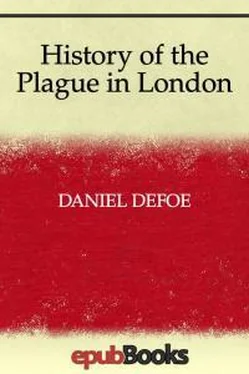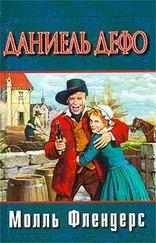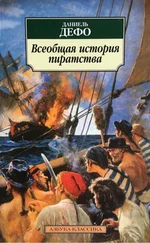Cloth, rag.
They could no longer give them regular funerals, but had to bury them promiscuously in pits.
Evidently a repetition.
In old and middle English two negatives did not make an affirmative, as they do in modern English.
It is now well known that rue has no qualities that are useful for warding off contagion.
"Set up," i.e., began to play upon.
Constrained.
Because they would have been refused admission to other ports.
Matter. So used by Sheridan in The Rivals, act iii. sc. 2.
Probably a misprint for "greatly."
This.
Are.
He has really given two days more than two months.
A count.
Range, limits.
Unknown.
Lying.
Was.
Notice this skillful touch to give verisimilitude to the narrative.
Country.
"Without the bars," i.e., outside the old city limits.
Profession.
The plague.
The legal meaning of "hamlet" in England is a village without a church of its own: ecclesiastically, therefore, it belongs to the parish of some other village.
All Protestant sects other than the Established Church of England.
A groat equals fourpence, about eight cents. It is not coined now.
A farthing equals one quarter of a penny.
About ten miles down the Thames.
The t is silent in this word.
Hard–tack, pilot bread.
Old form for "rode."
See the last sentence of the next paragraph but one.
Roadstead, an anchoring ground less sheltered than a harbor.
Substitute "that they would not be visited."
The plague.
St. Margaret's.
Nota bene , note well.
Dul´ich. All these places are southward from London. Norwood is six miles distant.
Old form of "dared."
Small vessels, generally schooner–rigged, used for carrying heavy freight on rivers and harbors.
London Bridge.
This incident is so overdone, that it fails to be pathetic, and rather excites our laughter.
Supply "themselves."
Barnet was about eleven miles north–northwest of London.
Holland and Belgium.
See Luke xvii. 11–19.
Well.
With speed, in haste.
This word is misplaced. It should go immediately before "to lodge."
Luck.
Whom.
A small sail set high upon the mast.
"Fetched a long compass," i.e., went by a circuitous route.
The officers.
Refused.
Nearly twenty miles northeast of London.
He. This pleonastic use of a conjunction with the relative is common among illiterate writers and speakers to–day.
Waltham and Epping, towns two or three miles apart, at a distance of ten or twelve miles almost directly north of London.
Pollard trees are trees cut back nearly to the trunk, and so caused to grow into a thick head ( poll ) of branches.
Entertainment. In this sense, the plural, "quarters," is the commoner form.
Preparing.
Peddlers.
"Has been," an atrocious solecism for "were."
To a miraculous extent.
"Put to it," i.e., hard pressed.
There are numerous references in the Hebrew Scriptures to parched corn as an article of food (see, among others, Lev. xxiii. 14, Ruth ii. 14, 2 Sam. xvii. 28).
Supply "(1)."
Soon.
Substitute "would."
Whom.
Familiar intercourse.
Evidently a repetition.
"For that," i.e., because.
Singly.
Supply "to be."
Buildings the rafters of which lean against or rest upon the outer wall of another building.
Supply "of."
The plague.
"Middling people," i.e., people of the middle class.
At the mouth of the Thames.
Awnings.
Two heavy timbers placed horizontally, the upper one of which can be raised. When lowered, it is held in place by a padlock. Notches in the timbers form holes, through which the prisoner's legs are thrust, and held securely.
The constables.
The carters.
The goods.
In spite of, notwithstanding.
Supply "who."
"Cum aliis," i.e., with others. Most of the places mentioned in this list are several miles distant from London: for example, Enfield is ten miles northeast; Hadley, over fifty miles northeast; Hertford, twenty miles north; Kingston, ten miles southwest; St. Albans, twenty miles northwest; Uxbridge, fifteen miles west; Windsor, twenty miles west; etc.
Kindly regarded.
Which.
The citizens.
Such statements.
For "so that," substitute "so."
How.
It was not known in Defoe's time that minute disease germs may be carried along by a current of air.
Читать дальше












